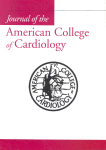Heart health warning: Man scheduled for hip replacement winds up with quadruple bypass surgery | Fox News
David Holland of New York City thought he would be having a hip replaced. Instead, after a cardiology checkup, he wound up needing quadruple bypass surgery. Here's his story.
Shur told Fox News Digital that as an orthopedic trauma specialist and joint replacement surgeon, he believes it is important to be thorough. "I am not just putting metal into a patient," said. "The patient has to be looked at medically," he said — noting that it is "very important to be sure the patient is fit for surgery before it is too late."
This guy should teach some of his colleagues how to “do the medicine stuff.”
